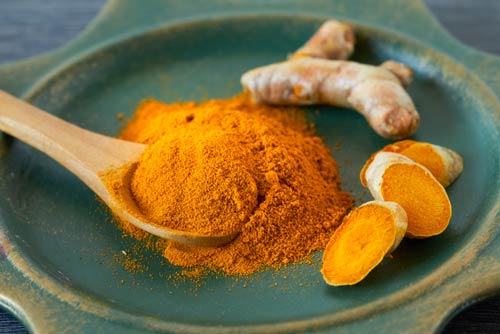Turmeric is the spice that gives Asian curries their distinctive golden color. But it isn’t just a culinary treat.
For thousands of years, practitioners of Ayurvedic medicine and Traditional Chinese Medicine have used turmeric and curcumin, its best-known derivative, as a staple medicinal treatment.1
Today, these powerful anti-inflammatory agents are being studied for a wide variety of ailments:2
- Alzheimer’s disease
- Arthritis
- Cancer
- Diabetes
- Pylori infections
- Inflammation
- Inflammatory bowel disease
- Irritable bowel syndrome
- Peptic ulcers
- Psoriasis
- Vitiligo
Although turmeric and curcumin show promise as treatments for all these conditions, the research is most compelling for diabetes. It’s a disease that affects more than 30 million people in the United States.
A 2015 review published in the journal Evidence-Based Complementary and Alternative Medicine examined 13 years of research on curcumin as a treatment for diabetes.3
The authors found compelling evidence that curcumin:
- Controls blood sugar.
- Improves insulin sensitivity.
- Prevents prediabetes from turning into diabetes.
Another study published in 2012 in the journal Diabetes Care found similar benefits. Researchers randomly assigned 240 patients with prediabetes to receive either curcumin or placebo capsules.
After nine months, the scientists were astonished to find that not one of the curcumin-treated patients had progressed to full-blown diabetes. Yet 16.4% of the placebo-treated patients did.4
They also found that curcumin improves the function of beta cells that make insulin in the pancreas. They concluded that adding turmeric or curcumin to the diet is a good way stave off diabetes.
Other research suggests that curcumin can reduce serious diabetes-related complications:5
- Cataracts
- Fatty liver disease
- Kidney disease
- Nerve damage
- Slowed wound healing
- Vascular disease
Although curcumin shows great promise as a treatment for diabetes and other serious conditions, it has one drawback: poor bioavailability. It needs fat to be absorbed by the body.6
That’s why we recommend a form called BCM-95. It includes natural oils from the turmeric plant that help your body metabolize curcumin. BCM-95 is widely available at health food stores and online.
Turmeric and curcumin are considered generally safe. In large doses, however, they may cause indigestion, nausea, or diarrhea.
Editor’s Note: If you’re watching your blood sugar, there’s something else you should know… Some of the most powerful anti-diabetes weapons may already be in your kitchen. Go HERE to discover all the details.
Like this Article? Forward this article here or Share on Facebook.
References:
1 https://www.ncbi.nlm.nih.gov/pmc/articles/PMC3857752/
2 http://www.medicalnewstoday.com/articles/317721.php
3 https://www.ncbi.nlm.nih.gov/pmc/articles/PMC3857752/
4 https://www.ncbi.nlm.nih.gov/pubmed/22773702
5 http://www.medicalnewstoday.com/articles/317721.php
6 https://www.ncbi.nlm.nih.gov/pmc/articles/PMC3857752/

